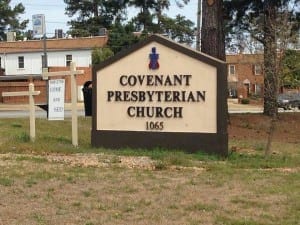Karl Enter, an Oconee County resident and artist, has always had art in his life; after all, it was his father, Harold Enter, who began drawing on letters back home from the front during World War II.
“I always had art stuff just laying around,” Enter said. “I did a lot of drawing and eventually started painting and just kind of kept on with it over the years.”

But Enter’s art has never had a role in a time like this at the Oconee County Cultural Arts Foundation, or OCAF, where he organized the “Romancing the Coast” exhibit.
It is the foundation’s first in-person exhibit since COVID-19 shut down most non-essential businesses in March.
The exhibit, which has been on display since early October, showcases the works of several local artists, and is focused on the “love affair and passion of the artists with the ocean and the coast,” according to OCAF’s website.
Getting Creative
The in-person exhibit is a leap from what OCAF had to resort to just eight months ago.
During the height of the pandemic, OCAF took their art online. LaRuchala Murphy, the director of OCAF, saw the pandemic as an opportunity to show the foundation’s art to a different audience and demographic.
“I opened up a YouTube channel as well,” Murphy said, “so that we could get interviews from the artists to share those with the community.”

The page includes videos of gallery tours and Q&As with featured artists. But Murphy believes the therapeutic aspect of art is best experienced in person.
“Art is therapy, in my opinion,” Murphy said. “I think that having an outlet where people can actually see art in person, it gives you that kind of therapeutic outlet that is especially needed in this time where most people can’t connect with their family physically.”
A New Normal
Despite the return to in-person exhibits at OCAF, a lot has changed in order to be in accordance with CDC guidelines while perusing the galleries.
There are only 30 people allowed in the exhibit at a time, no food or drink is allowed, and masks are required.

“Romancing the Coast” featured artist Celia Brooks recognizes this can harm the experience for both the artist and the patron.
“You have to make reservations and go at an allotted time,” Brooks said. “And there’s no food or drink, so if people aren’t drinking they’re typically not going to be buying art.”
Impact of COVID-19 On The Arts
The arts have taken a blow during the COVID-19 pandemic. According to data from Americans For The Arts, the financial impact of the pandemic on various arts organizations across the country is $14.1 billion.
The added complication? Most of OCAF’s regular audience is older, putting them in an age bracket that makes them especially vulnerable to COVID-19. That makes it challenging to draw people in to visit exhibits in-person.
Despite these challenges, however, Enter and others still see the value in spending a day at the gallery.
“I think it’s especially important in this kind of time, as long as people can get out and view art,” Enter said. “Get their mind off some of the problems.”
The “Romancing the Coast” exhibit will be on display at the Oconee Cultural Arts Foundation until Nov. 13.
Molly English is a senior majoring in journalism in the Grady College of Journalism and Mass Communication at the University of Georgia.









Show Comments (0)